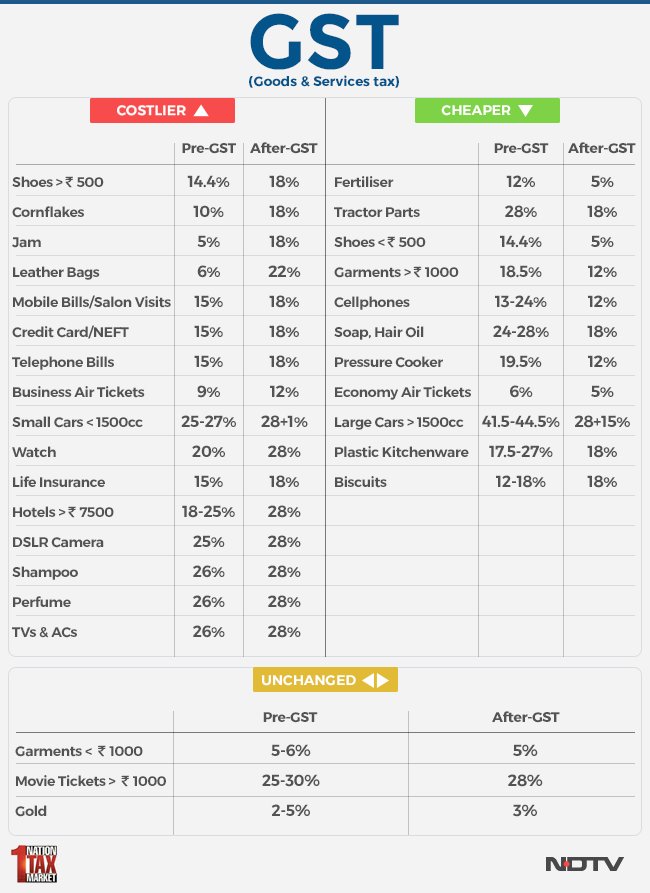GST
or goods and services tax changed the indirect tax landscape of the country
from July 1 by subsuming over a dozen of state and central taxes. Since GST is
meant to eliminate “tax on tax”, experts say overall tax burden on goods is
expected to fall over time. Many essential goods such as unpacked food grains,
gur, milk, eggs and salt won’t attract any tax under GST. Some services will
get costlier as banking and financial services have been put in the 18 per cent
rate slab under GST, from 15 per cent earlier.
“However,
going forward, it is expected that due to reduced cost because of availability
of GST credit on items hitherto not available, the price of services will also
come down which will benefit the consumers,” says Sandeep Sehgal, director-tax
and regulatory at Ashok Maheshwary & Associates LLP.
After
GST rollout, many items like footwear below Rs. 500 and garments could become
cheaper. On the other hand, items like TV and small cars could become costlier.
Petroleum
products such as petrol, diesel and aviation turbine fuel have been kept out of
GST as of now. The GST Council will take a decision on it at a later date.
Alcohol has also been kept out of GST.
Here
is the list of goods, their current effective tax rates and respective GST
rates under the new tax system, according to professional services firm EY:




No comments:
Post a Comment